“It’s one of the most magical times of life. It’s one of the biggest things that happens to us,” says death doula Molly Nelson of the end of life.
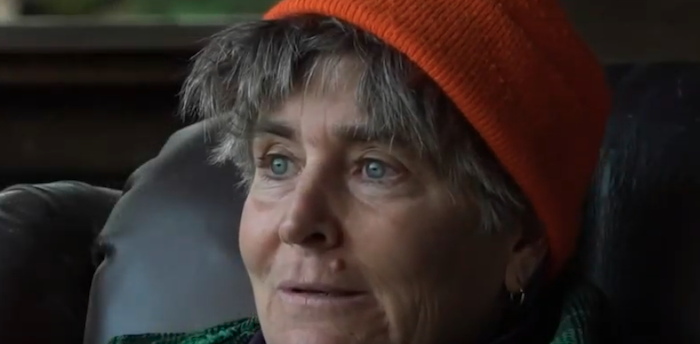

The Amateur's Guide To Death & Dying
Enhancing Life Near Death

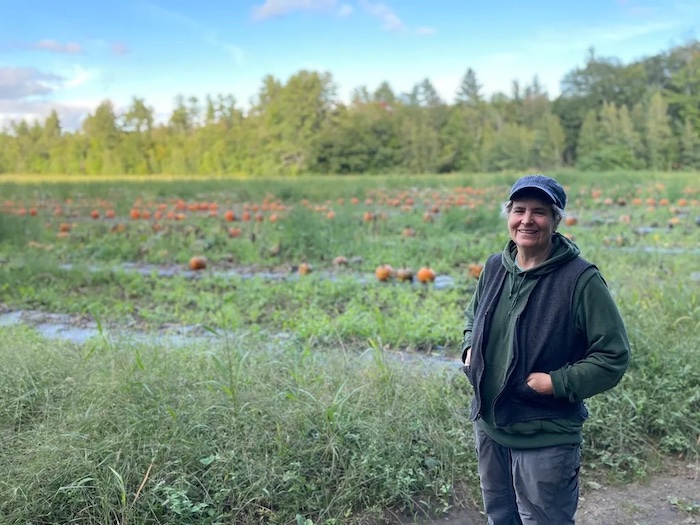
There once was a man who lived on a hill in rural Maine. He was 97, and had no living family and few friends. He had neighbors, but most of them were half his age or younger, and the man could sense that they viewed him with reserve. This bothered him, so he hired someone to help him figure out the problem.
“He said, ‘The neighbors don’t understand me,’” said Molly “Bones” Nelson, who offered her services to the man during his final days. “‘I’ve been here for 50 years and they fish on my land but they still think I’m the crazy old guy they can’t talk to.’”
Her solution? Throw a party.
“He kept telling me, ‘I’m not dying; I’m graduating,’” Nelson said.
Nelson is a death doula. She helps people with the emotional and psychological work of confronting the terminal stage of life, whatever that entails. Often, her work looks like talk therapy, working through death’s thorny questions with those facing them. She also works with clients who have lost someone suddenly, such as in a miscarriage or abortion. In this case, it meant helping a man find a kind of happiness at the end of his life.
To prepare for the party, the man and Nelson baked cupcakes that looked like skulls, crafted a tasseled cap for him to wear, and painted a mural of scenes from his life. They had partygoers write questions they had about death — even unanswerable ones — and throw them in a bowl. Then they played a game: pick a stranger at the party and take turns answering questions from the bowl.
“We played that game for three and a half hours,” Nelson said. “People didn’t want to stop.”
Nelson is the subject of a locally screening documentary, “death and her compass” by the California-based filmmaker Annie Munger. The film is part of the Camden International Film Festival, which runs virtually through Sept. 26.
While they aren’t considered medical professionals, death doulas perform a work that has existed around the world for centuries. In present-day America, the kind of end-of-life care work they provide is something of a lost art.
“Our elders get put off to the side,” Nelson said. “Older people have a ton of wisdom and experiences to share about their lives.”
The cost of in-home elder care has skyrocketed in the U.S. even before nursing homes began facing staffing shortages and enhanced risk of infection with the coronavirus. The trend leaves little time and resources for talking through the end of life.
But it’s often no easier at home. The vast majority of older people — 88 percent — prefer to receive government assistance to age at home rather than receive care in a full-time nursing home or senior living facility, according to a study by the Associated Press-NORC Center for Public Affairs Research published in May. That can push the expensive and time-consuming work of caring for elderly people onto families, who struggle to absorb the often-invisible costs of managing a family member’s physical and mental health, memory loss, food and other needs while juggling their personal and professional lives.
“Death is a huge part of life,” she said. “You’ve had all this amazing growth, adventure and experience. If you don’t process it and have those difficult conversations, it’s like skipping dessert.”
Nelson likes to let her clients lead the process. In the initial phase, they hang out, talking through fears and memories, anything of significance. The dying person supplies their own spiritual beliefs, and she works with what they give her. Big religious and existential questions inevitably come up, but Nelson mostly works with relationships on the mortal plane. (Nelson keeps information from clients confidential, but others, like the 97-year-old, allow her to discuss their cases in general terms after their passing.)
Then, Nelson works with them to design a “legacy project,” something they can leave behind to friends and family, or to the world, that doesn’t neatly fit in a legal will. It might be a party or it might be a quilt, a donated plot of land or a long poem she writes with the dying person’s help and reads to them when fear rides high.
Nelson learned the trade with the International End of Life Doula Association, a training organization founded by New York hospice worker Henry Fersko-Weiss in 2003. Fersko-Weiss was a social work manager at the largest hospice in New York City, accepting roughly 500 patients a day. While he saw them receive adequate medical care, the sheer volume of patients needing hospice care meant that some needs were going unattended.
“I kept seeing these gaps,” Fersko-Weiss said. “As dedicated as the clinicians are, unfortunately the structure and logistics of hospice made it difficult for clinicians to spend a great deal of time and do deep work with people who are facing death.”
Something clicked when Fersko-Weiss talked with a friend who was becoming a birth doula. He trained to become one too, eventually modeling an end-of-life doula program from its teachings about helping expecting parents usher babies into the world. He could train volunteers to be present for dying people in a way similar to those learning to be birth doulas.
Nelson is the only one in the state formally credentialed through international association, which offers a rigorous certification process. There are roughly a dozen working death doulas in Maine who have trained through the association or the End of Life Doula Alliance, which was founded in 2017.
Nelson, 57, took a long road to this line of work. The nickname “Bones” is unrelated to her profession — a scrawny child, she’s had it since youth — but many clients find as much humor in it as she does. She moved to rural Maine from New Jersey at age 18 and has been farming ever since. Today, she primarily grows pumpkins.
Death has been a part of Nelson’s life since birth. She was born with a heart condition, a thin-walled aorta that’s “shaped like an hourglass.” Doctors have told her that it “could explode at any moment.” In 2007, she had a stent put in her heart, and it tore through two layers of her aorta. But she survived and continues to farm, hike and ride dirt bikes.
She’s also lost those close to her. Nelson’s mother died by suicide at the age of 82, after multiple attempts during her life, and her father died of cancer in 2013.
“I’ve had a lot of healing to do,” Nelson said.
Nelson takes death seriously, but doesn’t necessarily see it as a grave subject. It’s easy to imagine her combination of folksy wisdom and well-timed humor softening some thick layers of fear. As shown in “death and her compass,” Nelson’s sessions with clients seem much less like a psychological evaluation or transcendental ritual than two old friends just talking.
Nelson said that she “doesn’t believe in death” after a life spent outrunning its shadow.
“I got a T-shirt that has a picture of a sloth on it. It says: ‘Live Slow, Die Whenever,’” she said with a laugh.
The sentiment captured the way Nelson has come to think about the subject.
“I don’t feel rushed because I don’t feel like there’s an end,” she said. “If I don’t get to ride my dirt bike across Mongolia by the time I’m 60, so what. I’ll just do it next time.”
Complete Article ↪HERE↩!
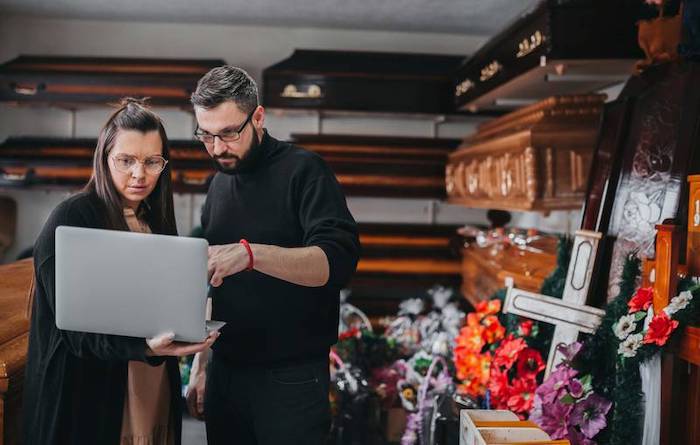
Arlena Marie from Arizona, Texas, decided to take a leap and ask in Side Hustle Nation, a Facebook group, how to become a “death doula” and market herself as one.
While some were aghast at hearing such a profession exists, others had their interest piqued because, morbid as it sounds, every person on the planet is a potential customer.
The word doula originates from the ancient Greek term doule and translates as a person who serves. Birth doulas are now common and, like midwives, provide services during the birthing journey. A death doula, on the other hand, offers emotional support to people who believe they’re nearing the end of their life and would like to make the days count.
Death is the single certainty in life, yet people continue to fear it instead of preparing for it. I wanted to create a death-positive landscape.
Avril Carr, death doula from Al Ain
While professional moirologists (also known as “crying ladies” in some cultures) have been around for centuries and are hired to wail at funerals, the pandemic has brought death doulas to the fore, as an alternative form of mourner.
Avril Carr is a death doula from Al Ain. She trained as a hypnobirthing teacher, breastfeeding supporter and paediatric sleep consultant, and realised that while a wealth of knowledge is available for the birthing process, the reality of death remains largely ignored.
“We’re suspicious of death, which is interesting because not everyone will give birth, and yet there are countless ways in which mothers and fathers are encouraged to prepare for birth. Death is the single certainty in life, yet people continue to fear it instead of preparing for it. I wanted to create a death-positive landscape,” Carr tells The National.
Having a calm presence to see people through difficult moments and celebrate any glimpses of beauty together is a much-needed trait for death doulas. Carr says the feeling of fulfilment when helping someone with death anxiety is an extremely rewarding experience.
“We care for clients in ways that are personally meaningful and affirming to them. Our focus is assisting people with planning, preparing and processing,” says Francesca Arnoldy, a death doula from Burlington in the US, who also developed the end-of-life doula training programme for The Robert Larner, MD College of Medicine at the University of Vermont.
The most heartbreaking thing is to hear someone say: ‘I wish I had known about you sooner’
Lala Langtry-White, doula
Unlike hospice nurses and other end-of-life support providers, death doulas are emotional companions first and foremost, and must be able to customise their services based on what a person is looking to do to help ease the process.
Planning could involve creating schedules to meet others, having conversations that help with the transition, organising a pre-funeral while the person is still alive and sorting through belongings. Some may even want to make a scrapbook or involve family members to help them through the grief.
The amount of grief and uncertainty the pandemic brought has made many – both the ill and the relatively healthy – want to discuss death and have all their affairs in order, be they practical or emotional.
While stay-at-home measures were enforced in many places across the world, death doulas, like most others, turned to technology and came up with creative ways to virtually bring families together during tough times, making people realise they needed tools and information to bolster their sense of readiness.
Jessica Mendivil, a death doula from California, developed free community calls and training for families to help them cope with the loss of loved ones and general lack of preparedness.
Carr realised that while she missed being physically present, she could still impart training virtually on setting the death space, which included different ways to record one’s legacy and sit vigil when death was near.
Small and Mighty Babies, run by Lala Langtry-White and Joanne Hanson-Halliwell in the UAE, set up and continues to offer an online Love Through Loss community, plus monthly support evenings and access to voluntary bereavement doula support and counselling with The LightHouse Arabia.
It’s a lucrative job, but professionals know it can be a vulnerable and intense journey. Death is still not an easy subject for most people and perhaps never will be, but Langtry-White says the most heartbreaking thing is to hear someone say: “I wish I had known about you sooner.”
Complete Article ↪HERE↩!
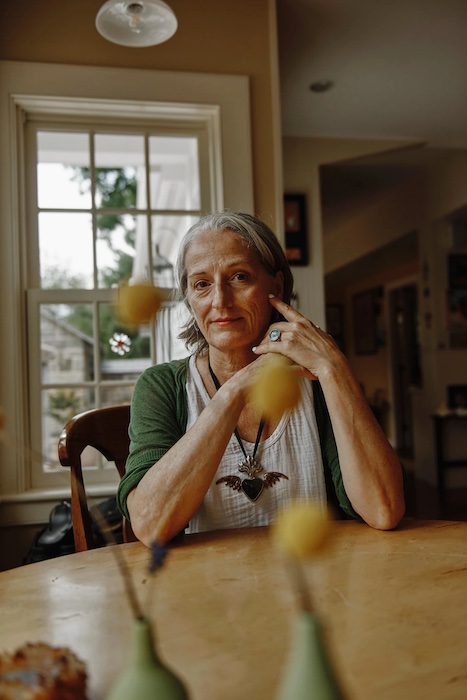
By Abby Ellin
As parents of a child with a progressive and potentially fatal illness, Maryanne and Nick O’Hara lived on hope. Hope that their daughter, Caitlin, who was diagnosed with cystic fibrosis at age 2, would prove the statistics wrong and live longer than the 46 years expected. Hope that she would receive the lung transplant she spent two and a half years waiting for in her early 30s. Hope that her body wouldn’t reject it.
That hope faded on Dec. 20, 2016, when Caitlin O’Hara died of a brain bleed at the University of Pittsburgh Medical Center, two days post-transplant. She was 33.
Shattered, her mother decided to try to give meaning to her grief. And so she signed up for a certificate program at the University of Vermont’s Larner College of Medicine to become an end-of-life doula, or “death doula,” working with individuals and families as they moved from this life into whatever is next. (The terms “end-of-life doula” and “death doula” are used interchangeably, though some find the latter a little too blunt.)
“In our culture, we go overboard preparing for birth, but ‘hope for the best’ at the end of life,” said Ms. O’Hara, 62, who lives in Boston and Ashland, Mass., and is the author of “Little Matches: A Memoir of Grief and Light,” published in April. “The training was really a way of going even deeper into my own grief and realizing how I could take my own experience and help other people have a better end of life.
“I saw for myself how horrifying it is during a medical crisis and then after a death, to realize that life keeps going and needs attending to,” she continued. “As soon as Caitlin passed, suddenly it’s over and the person is gone and you have to deal with the business of living. A good doula will support you with that.”
The word “doula” comes from the Greek word meaning “woman who serves,” though most people associate it with someone who helps during birth to usher in life. In recent years, however, more people have come to recognize the need for as much assistance at the end of life as the start, part of the so-called death positivity movement that is gaining momentum in the United States and other countries. The movement, popularized by the mortician and writer Caitlin Doughty, encourages open discussion on death and dying and people’s feelings on mortality.
“The beginning of life and the end are so similar,” said Francesca Arnoldy, the lead instructor at UVM’s End-of-Life Doula program. “The intensity of it, the mystery, all of the unknowns. You have to relinquish your sense of control and agenda and ride it out, and be super attentive in the moment.”
Unlike hospice workers, doulas don’t get involved in medical issues. Rather, they support clients emotionally, physically, spiritually and practically, stepping in whenever needed. That could be a few days before someone dies, sitting vigil with them in their last hours, giving hand massages, making snacks. Or it could be months or even years earlier, after someone receives a terminal diagnosis, keeping them company, listening to their life stories or helping them craft autobiographies, planning funerals. Prices range from $25 an hour on up, although many, like Ms. O’Hara, do it voluntarily. And like Ms. O’Hara, many have signed on to help give new meaning to their own grief while helping others in the process.
More than 1,400 people have graduated from the UVM program since its inception in 2017. Coursework, which costs $800 for eight weeks, includes writing farewell letters to loved ones, crafting their own obituaries, completing legacy work or a “Life Story Project” with a trained volunteer, and starting or updating their own advance care planning files. The program also recently started a “StoryListening” research project in which mourners across the country are invited to share their stories of loss during the pandemic with a trained doula. At the end of the hourlong session, participants are given a recording of their own conversation.

Since its founding in 2018, the National End-of-Life Doula Alliance, a professional organization of end-of-life practitioners and trainers, has grown to nearly 800 members; membership nearly doubled in the last year, said its president, Angela Shook. Interest has increased in training programs with the International End-of-Life Doula Association, Doulagivers, and the Doula Program to Accompany and Comfort, a nonprofit run by a hospice social worker, Amy L. Levine.
Much of the growing interest in these programs has come from artists, actors, young people and restaurant workers who found themselves unemployed during the pandemic and recognized that they could still be of service.
“People were reaching out from a variety of different ages, younger than we would normally see, because they realized that people were dying in their age category, which doesn’t usually happen,” said Diane Button, 62, of San Francisco, a doula facilitator at UVM and a member of the Bay Area End-of-Life Doula Alliance, a collective of death workers. “It made them more aware of their own mortality and really made them want to plan and get their documents and advance directives in order.”
Rebecca Ryskalczyk, 32, a singer in Vergennes, Vt., had always felt “kind of comfortable” with death. She lost two cousins in a plane crash when she was 12 and a friend to suicide four years later. When Covid put her performing schedule on pause, she enrolled at UVM. Her goal is to let people know that they don’t have to be afraid of death; nor do they have to do it alone. “Being able to help advocate for someone and to spend the last moments of their life with them and help them stick to their plan when they may not be able to express that is an honor,” she said.
Before the pandemic, Kate Primeau, 35, also worked in the music industry. Last June, after her grandfather died of Covid-19, she began researching how to host a Zoom memorial and came across the concept of a death doula. “I felt a huge gap between the amount of grief everyone was feeling and the resources available,” she said. She got certified as an end-of-life doula through Alua Arthur’s company, Going with Grace, and also volunteers in a hospice program. “I can’t believe how much I’m geeking out over all this death education.”
During the pandemic, of course, doulas had to shift the way they worked. That was one of the main challenges: They couldn’t interact in person. So like the rest of the world, they resorted to Zoom calls and FaceTime. Families often reached out for their own healing.
“A lot are coming to me for ritual and ceremony when they can’t be with their loved one physically and they’re alone in the hospital room,” said Ash Canty, 34, of Eugene, Ore., who refers to himself as a “death walker.” “There’s a curiosity that wasn’t there prior to Covid. They’re wanting to know, ‘How do I make sense of this spiritually? How do I be with this? Because I’m really struggling.’”
As for Ms. O’Hara, who is also a novelist, she is primarily helping people write their life stories. Her training at UVM was “humbling.” “I went into it thinking ‘I’ve been a volunteer with people who are dying, I’ve lost my daughter, I’m an expert in grief,’” she said. But the longer she studied, the more she realized that she was only an expert in her grief.
“You really can’t tell anyone else how to grieve,” she said. “You can offer advice, but there’s no timeline for grief. As soon as people get a diagnosis, they’re grieving. Their way of life is over. Everyone has suffered some kind of grief with the pandemic, even if they haven’t lost a person.”
She believes that grief and joy can coexist. “My grief is never going to go away,” she said. “I wouldn’t want it to. Grief and joy and love — it’s all part of the same spectrum. I’m grieving because I loved someone so much.”
Complete Article ↪HERE↩!

by Sydni Ellis
Doulas are compassionate people who help others navigate some of life’s biggest transitions. Some doulas provide support and care to women bringing babies into the world, while others help ease individuals through the difficult and emotional passing of a loved one. These people are known as death doulas, or end-of-life doulas.
Recently, Riley Keough — granddaughter of Elvis and Priscilla Presley — announced on Instagram that she recently completed The Art of Death Midwifery training by Sacred Crossings and is on her way to becoming a certified death doula. In the post, she said, “I think it’s so important to be educated on conscious dying and death the way we educate ourselves on birth and conscious birthing. We prepare ourselves so rigorously for the entrance and have no preparation for our exit.” Riley’s decision to become a death doula comes almost a year after her brother, Benjamin, died by suicide in July 2020 at the age of 27.
Many other women have decided to take on this noble role of helping people in their final days. There are various courses that will certify you as a death doula, including the International End of Life Doula Association (INELDA). This association trains doulas to a high standard of professionalism, where they learn how to listen deeply, work with difficult and complex emotions, explore meaning and legacy, utilize guided imagery and rituals, assist with basic physical care, explain signs and symptoms of last days, guide families through the early days of grieving, and more. We talked to a few death doulas to find out more about this unique profession.
Dana Humphrey, a New York-based life coach and death doula who is certified through INELDA, told POPSUGAR, “Death doulas help the active dying transition with ease. We help them have difficult conversations with their loved ones, so they may say goodbye with grace. We help them figure out their legacy project and help them complete it. We add presence to the dying during a busy hospice environment. We also provide support to the family if they are having a hard time with the transition.”
Death doulas are the people that hold the hand of a dying person, ask them about their wishes and try to make them happen, and advocate for them every single day, according to Humphrey. Some of the things she might do include asking the dying person what mood they would like to see and feel when the family comes to visit and then setting that tone, like by having guests take a minute to sit down and move to a place of gratitude before visiting their loved one. Or she might have visitors meet in a “fun station” to put on funny hats or bedazzle themselves in glitter to add lightness in the room.
Suzanne O’Brien, RN, is the founder of the International Doulagivers Institute, who’s mission is to provide awareness, education, support, and programs to communities, patients, and their loved ones worldwide to ensure the most positive elder years and end-of-life process. She told POPSUGAR that a death doula is “a nonmedical person trained to care for someone holistically (physically, emotionally, and spiritually) at the end of life.” This job “recognizes death as a natural, accepted, and honored part of life.”
After years of working as a hospice and oncology nurse, O’Brien felt unfulfilled working hospice, where nurses manage the dying patient’s care but teaches the family how to do the actual 24/7 care. She said she typically didn’t have enough time with patients on hospice as she was only allowed about one hour, once a week with the patient, and she encountered many families afraid of death. This helped her realize that death is “a holistic human experience and not a medical one,” and she wanted to become a death doula instead.
“Every day brings different needs, but it will always center around support,” O’Brien explained. “I will get called by a family whose loved one was just given a terminal diagnosis and they do not know what to do next, or a family whose loved one is actively transitioning and needs more help in the home. [I also get] many calls from families and community members looking for education and resources to help facilitate the most peaceful passing possible.”
Donna Janda, Thanadoula practitioner (another term for death doula) and registered social worker, and Ananda Xela, Thanadoula practitioner and life coach with over 20 years’ experience in social work who has trained with INELDA, both founded Embracing Daisies to empower clients to “see the cycle of life and death not as something to simply rise above but as something to move through with soul and awareness, creating a living and lasting legacy.” They chose this profession to deal with their own feelings about death, as it helped them let death inform the fullness of their own existence, as well as to become part of this burgeoning field in which they didn’t see themselves or other BIPOC well-represented.
“There can be different ways of seeing and dealing with death, and when we talked to both clients within our Black communities and other doulas outside of our communities, we noticed the differences in approach and practice,” Janda and Xela told POPSUGAR. “A lot of the work that takes place in our own communities involves more emphasis on creating comfort around the idea of just talking about death in an honest and open manner before reaching the point of being able to plan for it. It can be a challenge for people who are already in vulnerable positions, historically and personally, to find the desire to face death and accept the idea that it can create more joyful living and offer more control over one’s own narrative — something that is often denied to marginalized peoples.”
Janda and Xela said, “To us, a death doula is someone who can hold space and offer support to both an individual and their loved ones in various areas all along the path between living and dying — from the parts where death seems unimaginable to the parts where it seems inevitable.”
As Thanadoula practitioners, these women hope to aid their clients in seeing that “life and death are connected and give meaning to each other.” They believe that deaths can matter as much as lives, and their job as death doulas is to help patients “discover, create, articulate, and manifest your heart’s wishes.” They also give families space to grieve by taking care of some of the more practical aspects that come from someone nearing the end of life.
If you are thinking about becoming a death doula, you should have a passion for other people, an open-mindedness about death, and the courage to help people through difficult times. O’Brien said, “People often ask, ‘How can you do that work? It must be so depressing.’ I have to say that it is the exact opposite. Working as a death doula has been the hardest thing I have ever done, but the most fulfilling and rewarding. It is an honor and privilege to work with families at this sacred time. What you learn from those at the end of life is wisdom that teaches us about life. It is the best decision I have ever made.”
Complete Article ↪HERE↩!
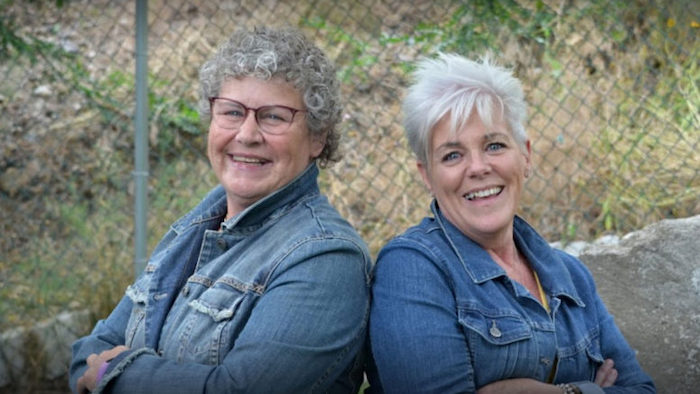
Only Karen Hendrickson and Jo-Anne Haun, co-founders of Death Doula Network of BC (DDNBC), can approach the topic of death with the perfect balance of positivity, passion, and of course, dark humour.
“Back in the 1980s, Dr. Ruth talked about sex,” Haun said in a Zoom interview from B.C. “She brought education and humour to it and now our children are learning about it in schools. That’s what we would like to do with death.”
Commonly associated with births, doulas offer physical and emotional support. They often handle administration and act as a go-between for patients and medical staff to minimize stress for patients and their families.
But doulas also play a role in end of life. “Death doulas” not only fill the gaps between patients and the health-care system, but also bridge the gap between the health-care and funeral industry. Their work has become particularly important during the COVID-19 pandemic, which has isolated dying patients, interrupted death rituals and placed extra stress on families.
Hendrickson and Haun, who have been friends for 20 years, became death doulas together back in 2018. They founded the virtual group to start a discussion around death and dying for anyone interested in the death-positive movement.
DDNBC has grown quickly and continuously since their first virtual meeting in April 2020. The network now has close to 140 members throughout Canada and around the world.
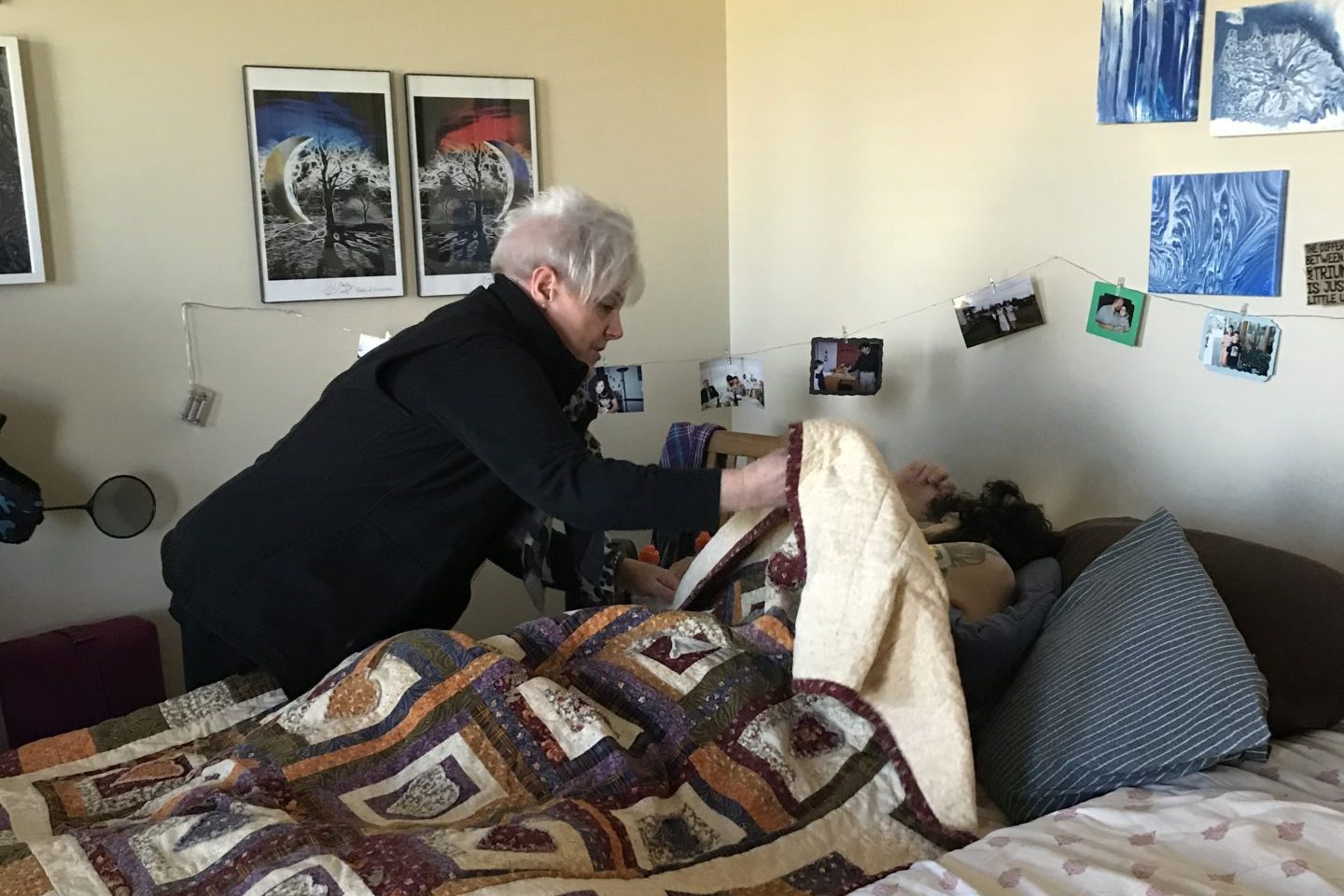
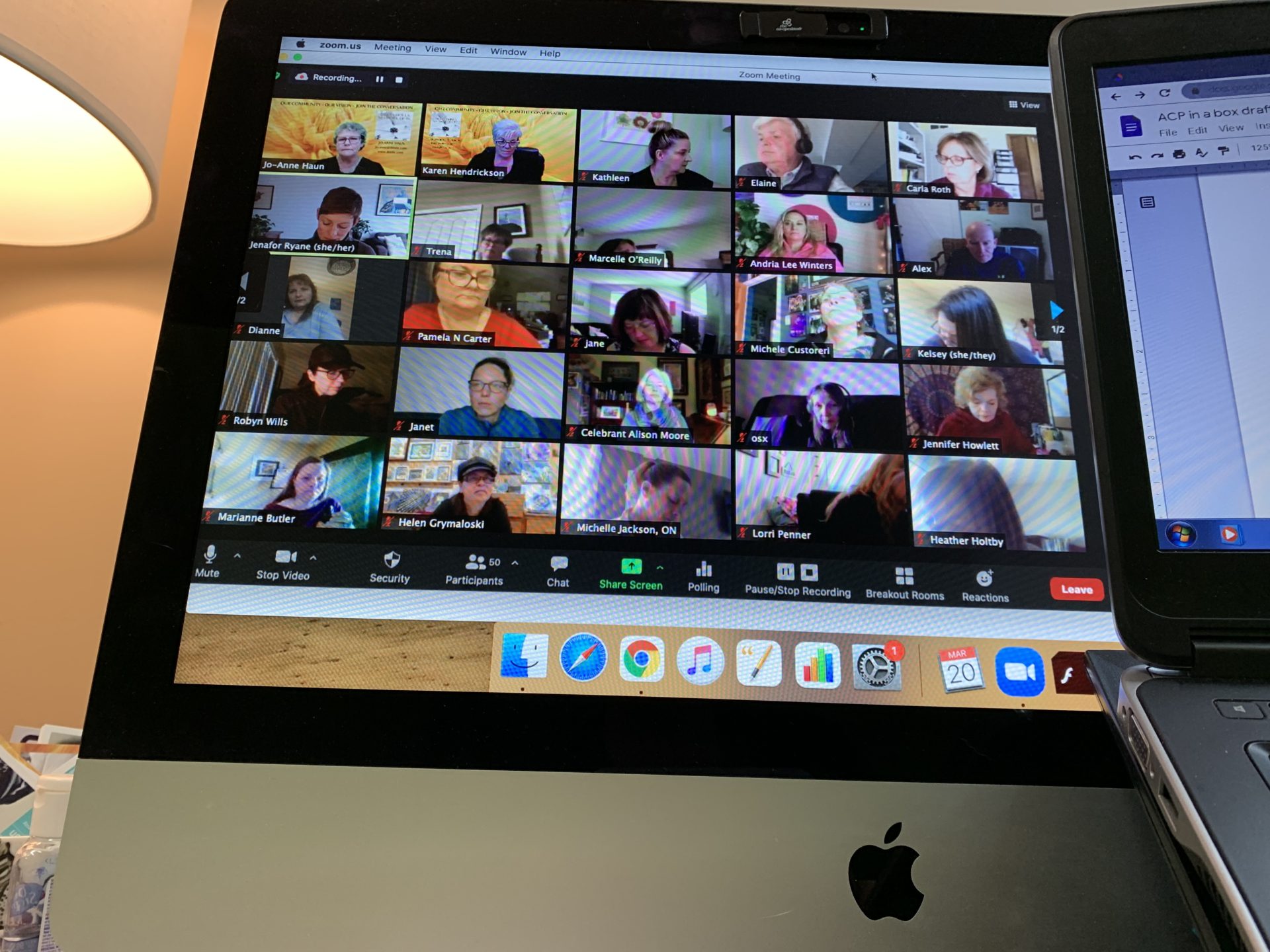
Gaps in the health-care system
Hendrickson and Haun have been part of the fight to include doulas within the health-care system to help fill some of the gaps between the system as its patients.
“You have likely heard of the rock metaphor before. Basically, The big rocks are the diagnoses. The medium rocks are your support people. The small rocks are your treatments. The sand in between the rocks is the doula,” Hendrickson said.
Things like confusing paperwork, new medical teams, and unfamiliar systems have a devastating emotional impact on patients and their families.
Hendrickson described an instance where a young patient with terminal cancer kept having to renew his burial permit but the medical staff continued to insist that it wasn’t important. That form is required by funeral services to take the person’s body from their home. Without an up-to-date form, the funeral service would refuse to take the body and the family would have to call the police.
“They would arrive with their sirens on and everything, and be forced to treat it like a crime scene because that’s their mandate,” Hendrickson said. “Imagine grieving families having to witness that.”
Ingrid Ollquist, based in Los Angeles, started as a birth doula in 2017, mainly supporting people through abortions and miscarriages. She decided to become a pre-planning and post-death doula after receiving emotional support from a doula mentorship program herself.
After a 10-year battle, Ollquist lost her mother to multiple sclerosis (MS). During this process, she was in and out of hospitals dealing with lots of administration with little support. As a death doula, she hopes to prevent others from experiencing this stress and isolation.
“It brought distance between my mom and I,” Ollquist said. “It was so frustrating to just live in logistical spaces with a person that you love that you can see dying in front of you.”
Ollquist is now the founder of the free grief support group Nurture Ing after being mentored by Jill Schock, the founder of Death Doula LA (DDLA).
COVID-19 has changed how we die
COVID-19 has made the gaps between health-care and funeral industries larger. Government regulations restrict patients from having more than one support person when in a hospital.
For death doulas, these restrictions mean patients die without their loved ones by their side. Doulas and family members must connect with the dying patient virtually.
“A COVID death is horrific. It’s the worst. You are losing more than just life, but all end-of-life rituals,” Ollquist said.
Many memorial and funeral events have been cancelled, and burial and cremation services have been substantially delayed.
Olliquist hasn’t personally dealt with more clients but she has played a larger role in supporting other doulas. She says that many doulas are now experiencing death anxiety after witnessing numerous horrific deaths all over the world. People of all different ages are dying without family and without rituals.
DDNBC and Ollquist suspect that more people are going to be thinking about (and planning for) their deaths after the pandemic.
“The pandemic has waved death in our face. Mortality is now at the forefront,” Haun said.
Complete Article ↪HERE↩!
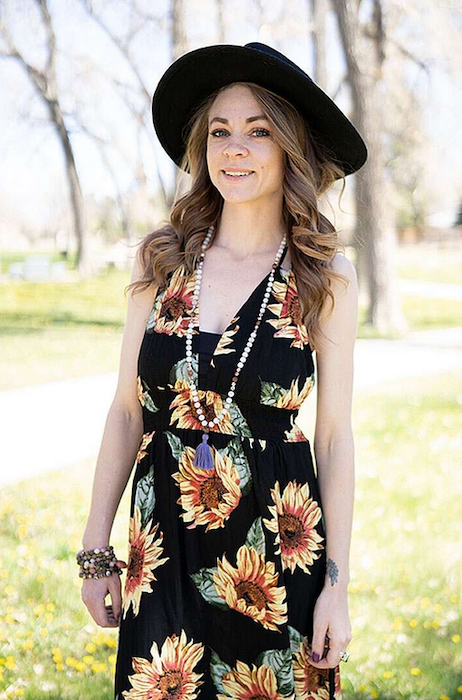
By Kara Mason
Ashley Scott describes the emotional side of her job as a death doula like a fountain in the middle of a lake.
Her job is to help shepherd a dying person through an experience that is so intimate, common and yet mostly taboo in American culture. Scott wants people to feel comfortable, safe and cared for in their last moments.
“You’re pouring out this energy and love and compassion and space for them to consume it all,” she said. “I really didn’t realize the amount of energy it took until my last client.”
The client, a woman who had outlived her husband and daughter, was standing up and alert when Scott first arrived at her home.
“I know who you are,” Scott remembers her saying. “I’ve been waiting for you.”
It gave Scott, who has worked in hospice care for over a decade, chills. She’d taken care of many dementia and Alzheimer’s patients and somehow, even as agitation and bursts of energy can be common close to death, this was different. The statement seemed “very cognitive,” she said.
The woman’s room was disheveled, stuffy and a daytime court television show was blaring, so Scott said she put her in bed, turned on some instrumental music, rearranged the furniture a bit, opened a window and dimmed the lights. She rubbed the woman’s arms and her face to make her comfortable.
“In that five hours we were able to hold that space for her and help her go into an active dying transition,” she said.
The woman had been in hospice care for more than a year before that day.
Scott officially started her journey as a death doula a year ago, but caring for people at the end of their life has been her passion since starting as a certified nursing assistant at a nursing home.
“It was just so beautiful, like to help and be there and basically just prepare and honor the shell that this person had,” she said of the first death she experienced as a hospice nurse. “After that, it was kind of just like if anybody was on the brink, I had this inkling of magnetism to them. I want to make sure they’re cared for and comfortable and loved and appreciated in their last days because it’s their most vulnerable point in life.”
Throughout her career at nursing homes, Scott said she knew there was something missing in caring for the dying. There wasn’t anybody to “hold the space” – a phrase that many people involved in end-of-life care use frequently in reference to death doulas’ work.
It wasn’t until a friend had sent her a link to a Zoom seminar about death doulas last May that it all came together for Scott, who is 32 and lives in Aurora with her fiance. She’s part of a growing number of workers dedicated to making death a more comfortable experience.
Doulas, by loose definition, tend to all the duties of dying that medical personnel do not. In a lot of ways they’re equivalent to a wedding planner, but for your final living moments.
They can help arrange funeral services, help complete legacy projects, make sure the aesthetic of a death place is exactly what a client wants and help family members cope after the passing of their loved one.
“We treat dying like a fast food experience,” Scott said. “And it should be treated like a five-course meal.”
For people who work in hospice care, the arrival and growing popularity of the death doula is welcomed, and it’s changing the approach and culture around an experience everybody will have.
Katelyn Van Valkenburg, the volunteer coordinator at Denver-based Namaste Hospice, jokes that she’s a little protective of Scott, who first started volunteering her doula services in November.
Van Valkenburg said she doesn’t want Scott to become overworked or burnt out because it’s become obvious how necessary doulas are to hospice care. Before Scott, the organization consisted of nurses, social workers and volunteers, but after working with Scott they’ve welcomed five more volunteer doulas.
“Some of us in hospice have grown accustomed to the routine death,” Van Valkenburg said. “They force us back into thinking about making this unique.”
Scott arrived at Namaste after two waves of the COVID-19 pandemic, but it felt “kind of like a new beginning,” Van Valkenburg said. For months, hospice nurses had been scrambling to care for patients, some inside nursing or retirement homes. Early on in the pandemic, sometimes Namaste’s workers weren’t even allowed inside facilities and had to find ways to comfort their dying patients from bedroom windows or over the telephone or a computer.
“It shook us to our core,” she said.
Nurses and social workers had to become creative, Van Valkenburg said. They arranged the donation of more than 150 radios for their patients, and they put aromatherapy diffusers in patient rooms when they could to make the atmosphere as comfortable as possible.
This winter, adding doulas to their care model helped hold the caretakers to “being fully present,” she said.
Even though neither private insurance nor Medicaid covers the cost of doulas, like it does for end-of-life medical care through a hospice organization, Namaste wants to eventually be able to pay its doulas. For now, they volunteer their services, mostly to meet requirements through certification programs.
Scott started her own private doula practice, called Benevolent Care, where planning services can range from $70 for one hour of Death Day planning to an extensive package where Scott is available around the clock. She said she usually works those costs out on an individual basis.
“Everybody is so different, and I don’t want to deny them,” she said.
While doulas don’t administer medical care, Nancy English, an assistant professor who teaches palliative care at the University of Colorado Anschutz Medical Campus, says there’s definitely a role for them in hospice settings.
“We need to look at death as important as birth, it’s a transition from one state to another. We know it’s a major transition, even if we don’t know what’s next,” she said. “The death doula helps us make it more sacred.”
English said she recently took a course for death doulas, and while she doesn’t plan on practicing as one, she wanted to see how it could help her prepare students for providing more holistic care.
“A doula can take the time to actually address some of the things that have been fragmented in care,” English said. “I think nurses are so creative and so caring as a group, and they want to do it, but you have one patient that’s dying in this bed and the next patient is coding. It’s just a difficult role.”
English, who was a hospice nurse herself for many years before becoming a professor, said the workload just doesn’t lend itself to the kind of one-on-one attention and comfort a doula can provide.
Scott said she believes her background as a hospice nurse has helped her in becoming a doula because she understands the medical jargon and also the struggle in not being able to comfort each patient as much as they might need.
It’s also good for the families of people in hospice care.
“Imagine having someone on your side, someone who is really right there with you walking alongside you in this process,” she said. “Someone that you could call who was there with you that saw certain things that maybe you missed, and you can call them and just be validated.”
“You’re drawn to it because either you have a curiosity or an experience,” she said.
The moment Scott learned that death doulas existed, she said she knew it was for her. That tends to be the case with most people who work in end-of-life care, said Cindy Kaufman, president of the Colorado End of Life Collaborative.
“You’re drawn to it because either you have a curiosity or an experience,” she said.
Kaufman and a small group of other doulas organized the collaborative because they saw a need for a common place for people working in the field. Somewhere they could connect services if they needed or just have a support system. The community has been steadily growing over the years, but Kaufman said she really saw an uptick about three years ago.
That’s in part because of a growing “death positive” movement, she said, which is largely credited to Los Angeles-based writer, activist and mortician Caitlin Doughty. In 2011, Doughty started a collective called The Order of the Good Death, which became a foundation for much of the crusade to see death in a brighter light.
Since then, death doulas have grown in popularity, according to Kaufman. There isn’t a sure way to tell just how many doulas there are in Colorado because they tend to work in their own private practices or through volunteering like at Namaste.
The movement has also birthed “death cafes” – groups where people can gather to talk about all aspects of dying – all over the country. English started a Denver-based death cafe in 2014, which typically met Sundays at the Tattered Cover bookstore before the pandemic. For the last year, she’s been hosting a small group on Zoom.
“They’ve been wonderful,” the professor said, echoing Kauffman that Westerners are beginning to view death in a different way.
Kaufman, English and Scott each say they see the shift, and maybe the pandemic – a collective experience of sudden death – may push forward even further.
“A life lost is a life lost and we need to honor that, and during COVID we didn’t get to,” Scott said. “We didn’t get to honor the dying process. It literally just happened, and I guess that’s what really drew me into being a doula. We get to honor the process.”
Complete Article ↪HERE↩!